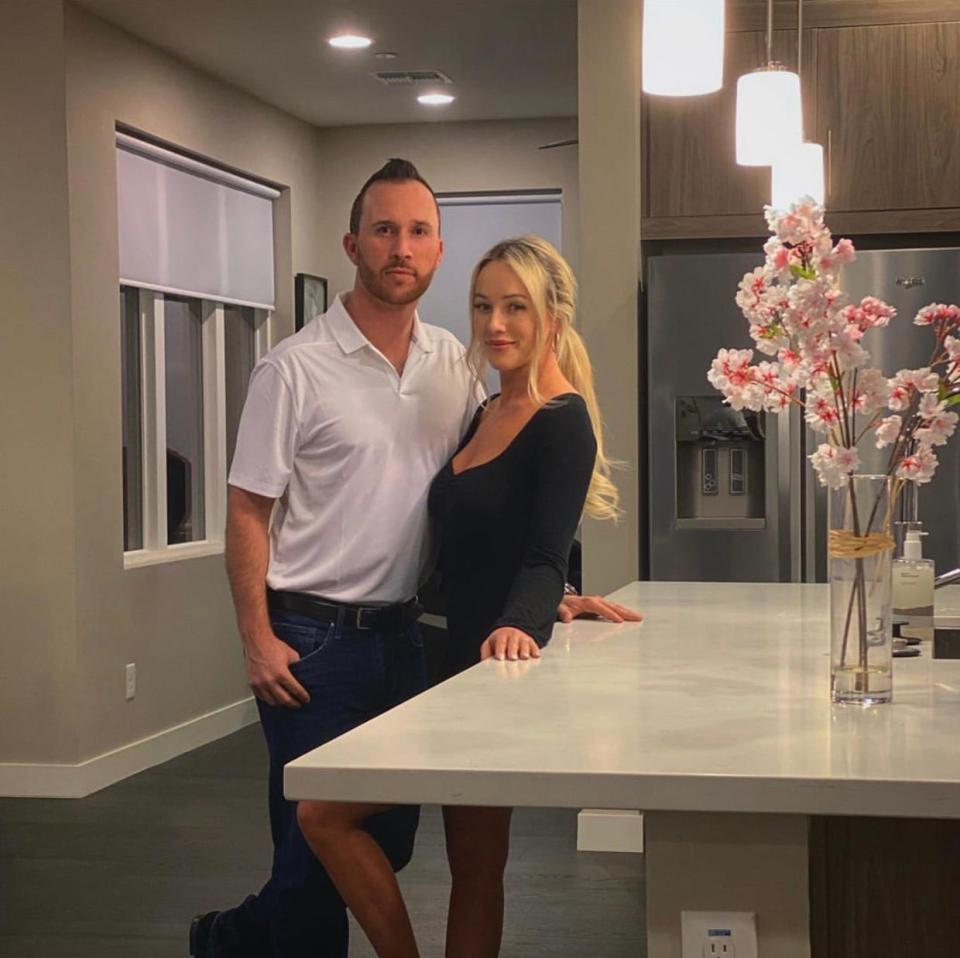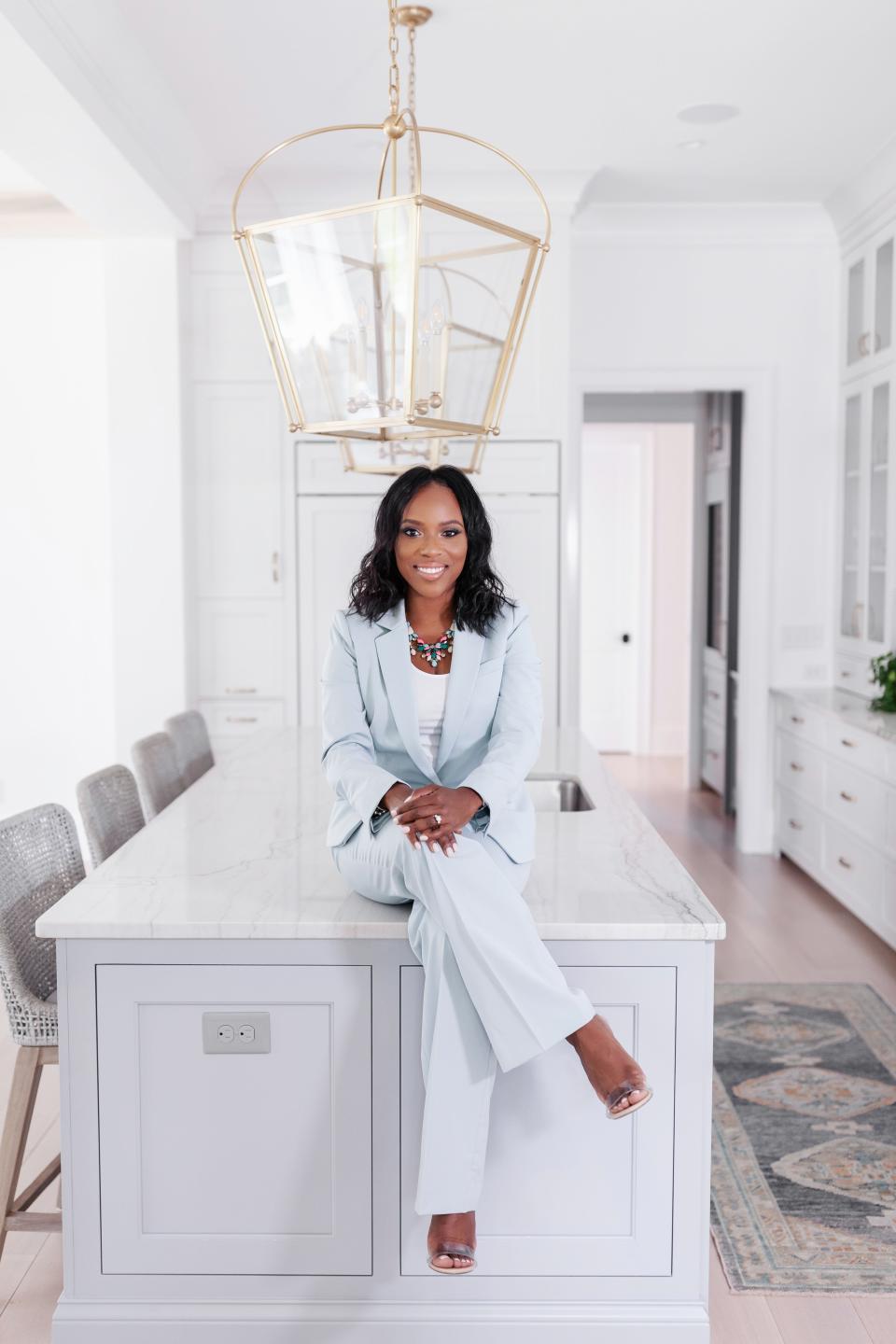Is your house too big for you? With prices soaring, some homeowners sell and go smaller

Instead of "downsizing", Michelle Montminy prefers to call her family's move into a smaller house “right-sizing.”
In June, the Raleigh, North Carolina, real estate agent and her husband, Joe, a manufacturing executive, sold their custom-built, five-bedroom, five-bath “dream house” with “a lot of extra rooms” for more than $1 million.
At 7,200 square feet, the property included a mini-theater, exercise room and walk-in wine cellar.
“It was plenty of space for me, my husband, our two daughters, two dogs and my mother-in-law,” Montminy says. “Now, our kids are grown and it’s a bit too much.”
With many families working from home during the coronavirus pandemic, demand for larger homes with more working space has been strong.
Hottest zip codes: Looking to buy a home? Here are this year's most popular housing markets in the US
Fleeing the climate:When turning on faucets is a source of stress: Climate change shapes where Americans relocate
Selling homes at a high price
Even so, sales to buyers moving to smaller spaces have remained steady over the past year because older people have decided to sell while prices are high, take their profits and move to smaller homes. However, that strategy isn't limited to older homeowners. Some millennial homeowners are also downsizing because of the lofty market and because they are holding off on starting a family.
Montminy says their house “hit the market on a Friday and we had a deal by Sunday.” As competitive bids poured in, a big family relocating from Northern California saw it online and made an offer Montminy couldn’t refuse.
“It sold faster than we thought,” says Montminy, who said her family is moving to a smaller, 4,500-square-foot home about 10 miles away.
Home sellers ask: Do we need all this space?
“The difficulty is deciding what you really need, and ask yourself, ‘Do we need all of that?’” Montminy says. “We thought, we should let somebody else enjoy it, and we can move on to our next phase.”

Typically, when individuals or households choose to downsize there usually are “major motivating factors,” that include kids going off to college or leaving the home, divorce, death, or relocation, says Costello REI Realtor Nelvia Bullock, a real estate agent who sells homes in the Charlotte metro area, one of the hottest housing markets in the U.S.
Rising rents: Rental prices reach the highest level in two years: 'Young adults are setting out on their own again'
The average sale price of homes in Bullock’s territory is $406,000, according to the Canopy Realtor Association, formerly known as the Charlotte Regional Realtor Association.
That price tops the U.S. median existing-home price of $363,300 for June, a record-high compared with year earlier, says Lawrence Yun, chief economist with the National Association of Realtors (NAR), who oversees the NAR’s research group. Besides the Carolinas, other states with hot housing markets include Arizona, Florida, Idaho, Texas and Utah.
In the past year, about 44% of buyers sought to buy bigger houses as the pandemic forced many to work from home, creating a desire for more room, Yun says.
Sales of smaller homes hold steady
Meanwhile, buyers looking to downsize have remained steady at around 28% in the past year, he says. The demand is driven by empty-nesters and buyers in their 50s and 60s who want additional cash on hand for their later years.
Overall home sales are up 5% year-to-date compared with 2020, Yun says, and the median price for homes is up 20% compared with last year. Yun adds that there’s still demand for housing despite limited inventory. Existing home sales rose 1.4% in June from May to a seasonally adjusted annual rate of 5.86 million, and June sales rose about 23% from June 2020, the NAR reported last month.
Timing is everything
Colin Jordan and his wife, Savannah, decided to sell their 2,100-square-foot, four-bedroom, three-bath home with a pool in Scottsdale, Arizona, in March 2020. As more people moved to Arizona, looking for large homes as COVID-19 spread, the millennial couple thought it was a good time to sell their home of four years and scale down.
“We weren’t necessarily trying to 'time the market' but we decided that the house was way more than we need. We barely used all of it,” says Jordan, who works remotely as an account executive at Egnyte, a tech startup based in Mountain View, Calif. “We also thought the house took a lot of upkeep, and since we are not having kids yet and it’s not our ‘forever home,’ let’s get a smaller place and save more money.”
After getting “a good six-figure gain” in equity on their home, the couple now rent a two-bedroom, two-bath apartment in quieter North Scottsdale. But they remain open to finding the right home if it pops up.
“We’re not going to buy a house just because we can,” says Jordan, acknowledging a low housing inventory in the greater Phoenix metro area. “We’re going to try waiting it out, and if there’s something we love, we’ll talk about it.”
However, he does wish they would’ve sold their home a bit later as market demand remains high.
“Do I kick myself for not waiting longer? A little bit,” Jordan says. “But we don’t regret our decision – not at all.”
Selling homes to build savings
Yevess Skeete says she and her husband, Leroy, share a similar sentiment about selling their 3,400-square-foot, four-bedroom, three-bath home in suburban Charlotte that they built in 2015.
A school nurse in Charlotte, Skeete says the couple had been thinking about downsizing for the past six months as they get older and their 17-year-old daughter heads off to college next year. They want to have more financial security for themselves and more money put away for her.
But the couple made the decision to sell their home in Lake Wylie, South Carolina, after Leroy had an unexpected health scare a few weeks ago. The dual-income couple, who are close to retirement, want a home with a downstairs master bedroom that will make it easier for them to get around and be caregiver-accessible, if necessary.
“We want to take advantage of a ‘Seller’s market,’ help our daughter out with any finances and be healthy,” Skeete says. “It’s a pretty big step for us."
Skeete is working with Bullock, the Charlotte-based agent, to sell her home and search for a new one.
Bullock says downsizing isn’t as easy as families think.
She has one client, an elderly couple who are downsizing from a 3,500-square-foot home outside of Charlotte with multiple bedrooms, a big backyard and a pool, to a 1,200-square-foot condominium in the heart of the city.
Besides moving, the couple is deciding how to make do with the smaller space, including where to place their china cabinet and an heirloom grand piano.
“With such a competitive and aggressive market," she says, "you have to really make sure your clients are comfortable with closing one chapter in their lives and opening a new one.”
Montminy, the Raleigh-based agent who just downsized, agrees.
Instead of a fully equipped exercise room, she says they will likely settle for a Peloton somewhere in their new home. She will still have space for a home office.
Her two daughters, both in their 20s, seem cool with the move, “as long as we have a place with enough space for them to come home for the holidays.”
This article originally appeared on USA TODAY: Shift in housing market keeps home prices high. Is it time to sell?

 money
money 